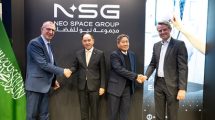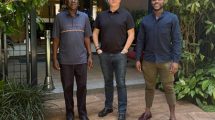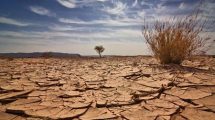 LeoLabs has issued a joint statement on debris remediation, co-signed by representatives of commercial entities in collaboration with the Secure World Foundation (SWF).
LeoLabs has issued a joint statement on debris remediation, co-signed by representatives of commercial entities in collaboration with the Secure World Foundation (SWF).
This initiative, led by LeoLabs and SWF, comes in response to the escalating accumulation of massive derelict objects, such as spent rocket bodies, in low Earth orbit (LEO). Recent data from January 2024 reveals that approximately 29% of the total mass in LEO comprises these large objects, with 43% of them lingering in orbit since the early 2000s. Such debris poses significant risks to the satellites vital for the global economy.
The signatories of the joint statement have agreed upon two key observations: first, that urgent action is needed to address the debris-generating potential posed by the thousands of massive derelicts, including spent rocket stages and non-operational payloads, littering LEO; and second, that persistent economic, legal, and policy challenges hinder the development of solutions aimed at removing these objects.
This joint statement will set the stage for the first Orbital Debris Remediation Summit, co-hosted by LeoLabs and SWF in Queenstown, New Zealand, on February 20, 2024. This summit aims to convene government and space industry leaders to expedite crucial activities supporting space sustainability. Participants will engage in discussions concerning various aspects of mitigating risk from massive derelicts through debris remediation.
Speaking about the deal, Darren McKnight, LeoLabs Senior Technical Fellow, said: “Everybody wins if we can retrieve remnants of decades-old space assets and allow for the next generation of missions to operate safely. LeoLabs is proud to partner with the Secure World Foundation on this joint statement and summit in New Zealand tackling the challenge of orbital debris. We look forward to continuing to drive a global, data-backed conversation on space sustainability.”
Peter Martinez, Executive Director of Secure World Foundation, added: “It’s not a question of whether we should engage in debris remediation, but rather what technical, policy and regulatory hurdles need to be overcome to make remediation practicable. For too long, remediation of massive derelict objects in LEO has been mostly an academic discussion, with no tangible actions in orbit. Someone has to take the lead to create a community of practice, and we are proud to have partnered with LeoLabs to bring together like-minded government and space industry leaders who want to move from remediation discussions to remediation practice.”














Add Comment